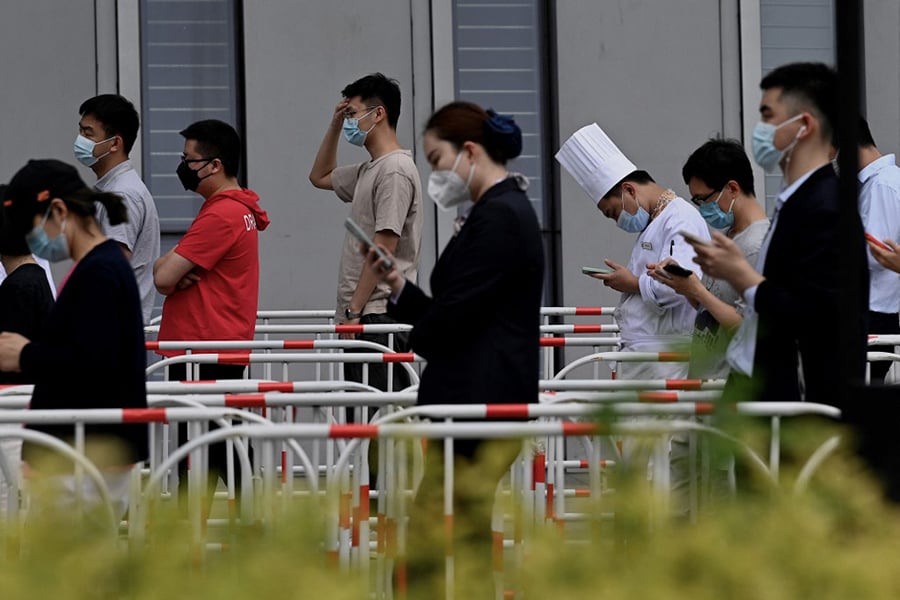
Layoffs and exits: Firms in China teeter under zero-Covid pressure
China is the last major economy welded to a zero-Covid strategy—putting firms and workers at risk of snap lockdowns, freezing activity in the services sector and tangling supply chains crucial for factories to sell their goods
 People queue to be tested for the Covid-19 coronavirus at a swab collection site in Beijing on June 13, 2022. Beijing on June 13 launched mass testing in its most populous district and delayed most school reopenings, as residents' precarious return to normal life is threatened by a rapidly expanding outbreak. Image: Noel Celis / AFP
People queue to be tested for the Covid-19 coronavirus at a swab collection site in Beijing on June 13, 2022. Beijing on June 13 launched mass testing in its most populous district and delayed most school reopenings, as residents' precarious return to normal life is threatened by a rapidly expanding outbreak. Image: Noel Celis / AFP
Beijing, China: Fiona Shi lost her job twice during the pandemic—first, in 2020 when Covid ravaged the travel industry, and then this year as China's strict virus controls hammered businesses in the world's number two economy.
China is the last major economy welded to a zero-Covid strategy—putting firms and workers at risk of snap lockdowns, freezing activity in the services sector and tangling supply chains crucial for factories to sell their goods.
Also read: China premier issues warning on Covid-hit economy
As the country battles its worst outbreak since 2020, its urban jobless rate has surged to the highest level in two years and the pain is being felt by both blue- and white-collar workers.
"Many places say they are not recruiting people aged above 35," said Shi, 38, who pointed to the difficulty of returning to entry-level positions after managerial roles.







